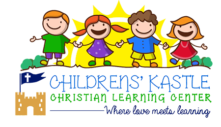Music is an incredibly effective way to build literacy, emotional and physical skills, even in infancy. Hearing and imitating music helps babies develop both speaking and listening skills. Experiencing rhymes, non-native languages, counting and colors in music all help infants build literacy skills later in life.
Music is often shared, between parent and child, classmates or multiple family members, making it a social and emotional experience as well. Soothing lullabies at bedtime teach babies how to regulate their emotions. Moving to music builds both gross and fine motor skills. This is also a great opportunity to encourage babies to reach across their bodies and use both of their hands.
Because music is so beneficial for babies’ brain development, it should be added to your family’s everyday routine. It’s easy to include infants in the same musical activities toddlers and preschoolers enjoy with a little bit of extra adult assistance.
Music and Movement for Infants
Even very young babies can enjoy the natural pairing of music and movement. This connection starts almost immediately after birth, as family members sway while they coo and sing to the baby.
Movement to music is important for helping infants find and follow a tempo. Bouncing your baby to the beat of a song, helping them clap along to a song and incorporating “wiggles,” like in This Little Piggy, all encourage rhythm.
Older infants and toddlers can start to integrate gross motor skills as they dance and jump to music. Fine motor skills are used for clapping, during interactive songs (Wheels on the Bus, Itsy Bitsy Spider, etc.) and when playing instruments.
Baby Musical Instruments
There are plenty of instruments infants can make music with. Small drums and shakers don’t require any additional equipment. They can easily be made out of kitchen pots and plastic bottles filled with beans or beads (as long as the bottles are glued shut). Bells and tambourines are other simple options. Xylophones and chime bars generally require a mallet, making them more difficult to use for infants still developing fine motor skills.
A Variety of Baby-Friendly Music
It is important to introduce your kids to lots of different types of music. Songs with and without words, songs sung in English, your home language and foreign languages, and songs you make up about your family’s daily routine will all engage young brains.
There is plenty of music created just for infants, including classics and newer recordings. You can also introduce your baby to music you love. If your favorites aren’t super kid-friendly, try instrumental versions. Movie and musical soundtracks are also good options. They often have the added benefit of telling a story, which helps develop literacy skills.
Live music can introduce even more types of music and instruments to your baby than you can at home. For older infants and toddlers, a laidback performance at a farmers’ market or coffee shop could be a fun weekend outing!



